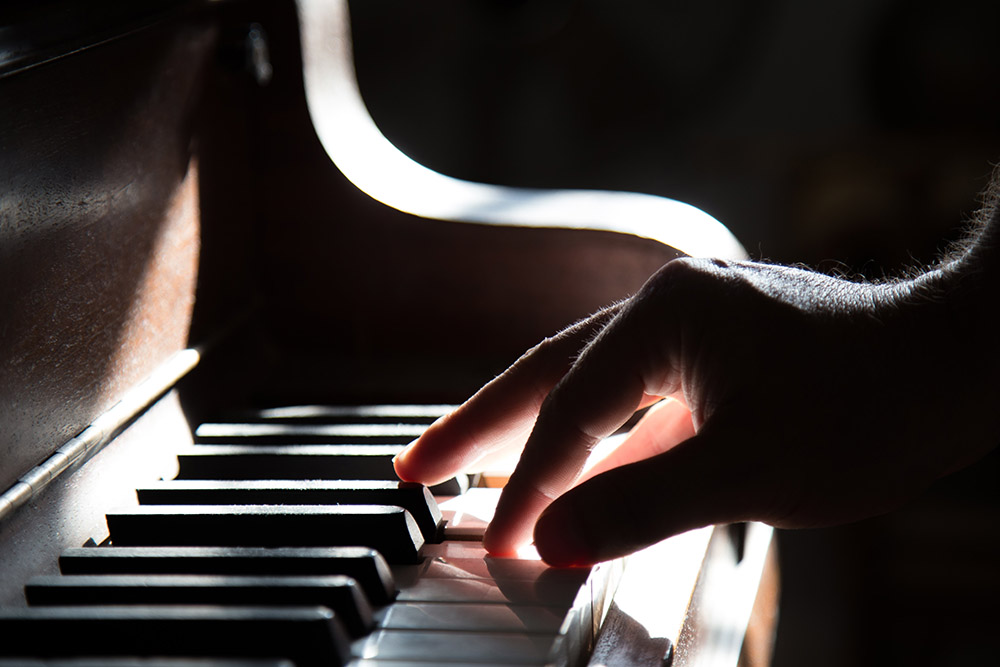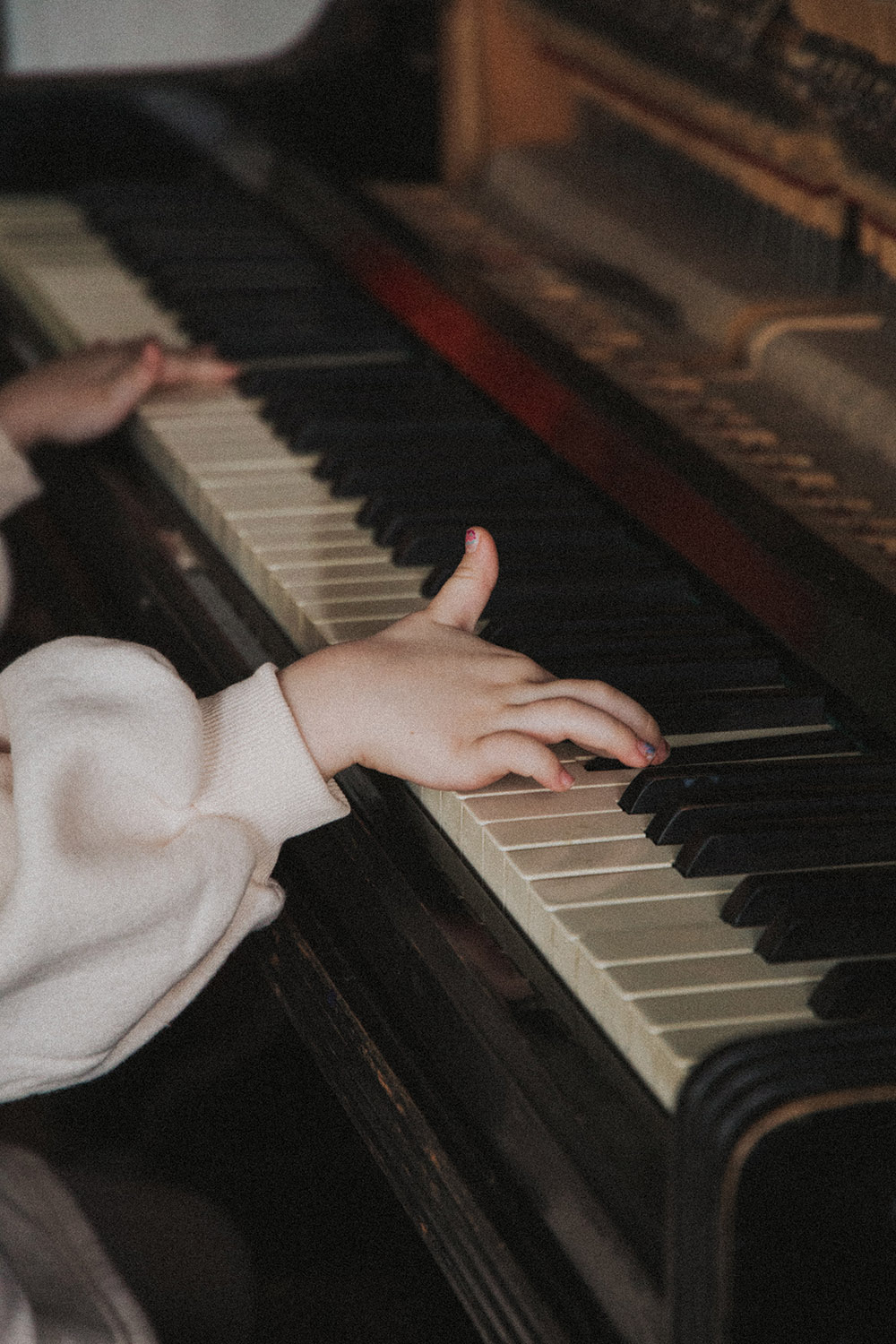Piano Lessons
As with all Suzuki instrumental lessons, Suzuki piano lessons start with the mother tongue approach to learning. All children learn to speak and understand their mother tongue fluently at a young age. They do so well before learning to read and write their language. Reading and writing are skills children do master, but a bit later in their growth than speaking. Suzuki piano lessons follow this same sequence. Young children beginning Suzuki piano lessons are regularly exposed aurally at home, in the car, and at lessons to recordings of the music they are learning, imitating the manner in which children learn language. Thus, students effortlessly and unconsciously learn the tunes of the songs they will later learn to play. When they are introduced to these songs at the piano, they are eager to learn to recreate songs at the piano that they have a long association with.
Parental involvement and positive support are critical in the “Suzuki triangle” of parent, child, and teacher. Parents attend and take notes and, if possible, make video recordings of lessons to review during the week with their child in practice time.
As is the case with language acquisition, every new step in a child’s growth with piano, no matter how small, needs to be met with enthusiastic encouragement by the Suzuki parent. As parents, we don’t criticize our 3-year-old for incorrectly using the subjunctive tense. Rather, we praise that child for expressing themselves with words, learning a new word, or showing that they understand someone else’s speech. In the Suzuki approach, students, with the encouragement of their parents and teacher, grow in their innate love of learning in this non-pressured environment of encouragement, stimulation through lessons, daily listening to recordings, and at home instrument time led by the parent.
Our KSA piano faculty member is Slade Trammel


More About Suzuki Piano Lessons
Parental involvement and positive support are critical in the “Suzuki triangle” of parent, child, and teacher. Parents attend and take notes and, if possible, make video recordings of lessons to review during the week with their child in practice time.
As is the case with language acquisition, every new step in a child’s growth with piano, no matter how small, needs to be met with enthusiastic encouragement by the Suzuki parent. As parents, we don’t criticize our 3-year-old for incorrectly using the subjunctive tense. Rather, we praise that child for expressing themselves with words, learning a new word, or showing that they understand someone else’s speech.
In the Suzuki approach, students, with the encouragement of their parents and teacher, grow in their innate love of learning in this non-pressured environment of encouragement, stimulation through lessons, daily listening to recordings, and at home instrument time led by the parent.
Common FAQs
For most children Suzuki piano lessons can successfully begin at age three. While many children start a bit later, at age 4 or 5 or even later, the results with very young children can be remarkable. Here is a lovely video on youtube of a 3-year-old playing her first Suzuki piano recital here:
You will need to get a piano at the home in order for your child to successfully take Suzuki piano lessons. While commercially available pianos can be quite costly, one can often obtain fine pianos used at a large discount. You will also need equipment at the home and in your car to play Suzuki piano recordings regularly for your child.
No special musical background or advanced expertise is required to be a great Suzuki parent. The first lesson or two you actually have without your child in attendance. In these sessions your child’s teacher will go over the philosophy and approach for the lessons, and explain how you can be a powerful positive leg of the Suzuki triangle in your child’s journey with music. Active engagement in lessons by the parent is necessary. This includes attendance, note taking from the lesson and, when possible, making videos. Helping create a schedule at the home that includes lots of listening to Suzuki piano recordings and daily home practice are also part of your role as a parent of a Suzuki student. For at least the first several years parents will help lead their child’s practice at home. It is especially important to remember that the goal of each practice is to have a positive, happy experience with the instrument and music. Every small success is praised, and every challenge is treated with kind patience. There is no challenge your child cannot master. Sometimes we need more time to master something. Sometimes we need to break a challenge into smaller constituent elements, mastering each of those smaller chunks before proceeding to combine them. In all of that engagement and problem solving, we commit as Suzuki parents to approaching the practice with calm patience and celebrate each small success with our child.
Remember, the goal of Suzuki lessons is to grow beautiful people and great and happy citizens. The process is everything. Musical expertise is a byproduct of that ultimate goal. The encouraging, supportive, non-stressful environment is of great benefit to your child in their quest with Suzuki piano study.
